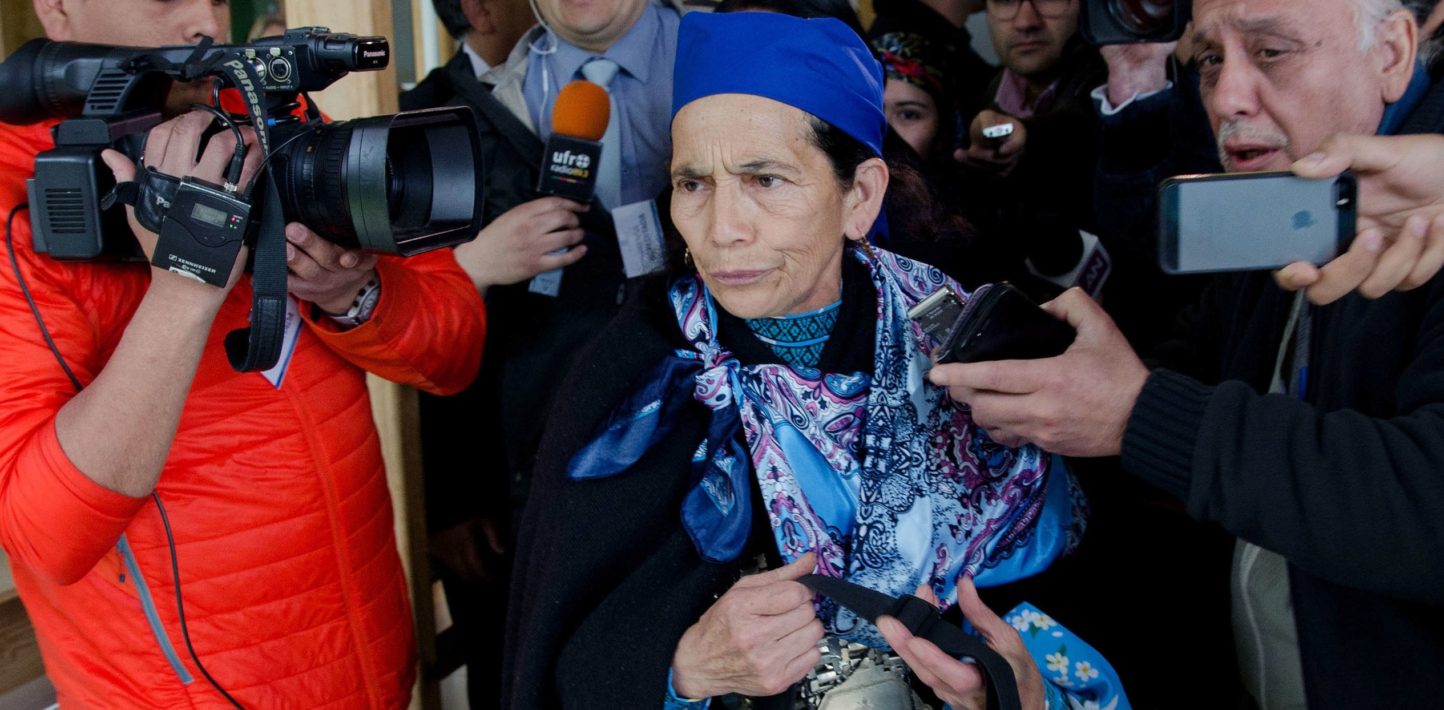Chilean authorities must stop using the Anti-Terrorism Law to criminalize the Indigenous Mapuche people and must investigate allegations of irregularities in the trial of the three people convicted in connection with the deaths of Werner Luchsinger and Vivianne Mackay in 2013, Amnesty International said today.
“This trial, which was marked by numerous complaints of irregularities, demonstrates the discriminatory manner in which justice is applied against leaders of Indigenous peoples. This not only affects the accused, but also violates the right to justice of the victims of the crime and their relatives,” said Erika Guevara-Rosas, Americas Director at Amnesty International.
“The Chilean authorities must conduct a thorough, independent, impartial and timely investigation into the allegations that illegally obtained evidence was used against the people who were convicted.”
Luchsinger and Mackay died when unknown assailants burned down their property on 4 January 2013. The machi Francisca Linconao, the spiritual authority of the Mapuche people, was one of 11 people accused of arson resulting in death with terrorist intent.
This trial, which was marked by numerous complaints of irregularities, demonstrates the discriminatory manner in which justice is applied against leaders of Indigenous peoples. This not only affects the accused, but also violates the right to justice of the victims of the crime and their relatives.
Erika Guevara-Rosas, Americas Director at Amnesty International
They were all acquitted in late 2017, but that first trial was then annulled. Three of the defendants were convicted today after facing another trial for the same crime, in a process that was tainted by multiple complaints of irregularities and which contravened international standards for a fair trial. The machi Francisca Linconao and the other seven defendants were acquitted again today.
On 27 April, two other Mapuche people were convicted and two more were acquitted of burning down an evangelical church in 2016, in another case of prosecution under the Anti-Terrorism Law. Despite the fact that the conviction was not based on this legislation, mechanisms permitted under this law were used throughout the judicial process, including prolonged preventive detention and the use of anonymous witnesses. The testimony of anonymous witnesses was the main basis for the conviction.
“With Chile having already been condemned by the Inter-American Court of Human Rights in relation to the application of the Anti-Terrorism Law against the Mapuche people, and particularly in relation to prolonged preventive detention and the use of anonymous witnesses, it’s outrageous that the authorities insisted on applying this legislation in almost identical conditions to in this case,” said Erika Guevara-Rosas.
The Chilean authorities must immediately desist from criminalizing the Mapuche people and their leaders under the Anti-Terrorism Law. The Chilean state has an obligation not to discriminate against Mapuche people and must guarantee their right to fair trials instead of labeling them as ‘terrorists,’
Erika Guevara-Rosas, Americas Director at Amnesty International
Amnesty International has closely followed both trials and has observed the continued use of disproportionate preventive detention, anonymous witnesses that violate the right to an adequate defense, and other irregularities in the gathering, admission and evaluation of evidence.
In other cases of a similar nature in Chile, the Inter-American Court of Human Rights has determined that the prosecution of Mapuche persons under the Anti-Terrorism Law violates their judicial guarantees, and has been based on stigma and discrimination.
“The Chilean authorities must immediately desist from criminalizing the Mapuche people and their leaders under the Anti-Terrorism Law. The Chilean state has an obligation not to discriminate against Mapuche people and must guarantee their right to fair trials instead of labeling them as ‘terrorists,’” added Erika Guevara-Rosas.
“They must also clarify the facts and bring to justice those responsible for the terrible deaths of Luchsinger and Mackay in a process that meets the standards of a fair trial.”
For more information or to arrange an interview, please contact:
Amnesty International press office (regional office in Mexico): +52 (1) 55 4848 8266, [email protected]
Ilsen Jara (Amnesty International Chile): +569 6427 8411, [email protected]


